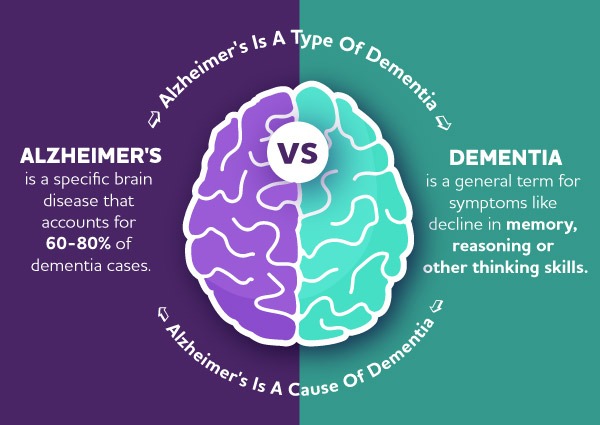
In August, results of a groundbreaking study led by a team of scientists at Vanderbilt University Medical Center was released that may provide genetic clues into the cognitive resilience of the human brain – that’s the organ’s ability to protect itself against disease and improve the chances of recovering from injury. Experts say this medical research could now help scientists discover new ways of developing treatments for Alzheimer’s Disease.
Alzheimer’s Disease is the most common form of dementia and a leading cause of death among older Americans in the U.S. We’ve noted more than one thousand November days of “National Alzheimer’s Disease Month” in our country since President Ronald Reagan – himself later a victim of the disease – signed a proclamation declaring it so in 1986.
Taking the time to recognize the signs of Alzheimer’s is important on so many levels:
- It’s a progressive disease where patients become worse over time, falling away from routines.
- When the disease is fully developed, patients aren’t sure where they are or may be unable to talk.
- Based on overall health, some may live as little as eight years, while others can survive up to 20 years with the disease.
At Castle Senior Living, our memory care program is a top objective. This year, we launched an enhanced approach called, “A Smile to Remember.”
We recognize that a smile is the universal sign for happiness. Studies show that patients with advanced dementia can reciprocate the feeling of a genuine smile, which helps lower their blood pressure, feelings of anxiety, and improve their mood. Our Dementia Care Practitioner and team of medical experts designed this program to transform the way people think about dementia. It allows our team to build happy, healthy relationships with residents, develop person-centered approaches that are custom to them, including proper nutrition, therapy and involvement in an engaging and continuous learning environment.
“A Smile to Remember” is our unique program for memory care, where our goal is to inspire those with dementia to live an active and meaningful lifestyle in our communities. Please contact us if you have questions or would like more information about our program.

